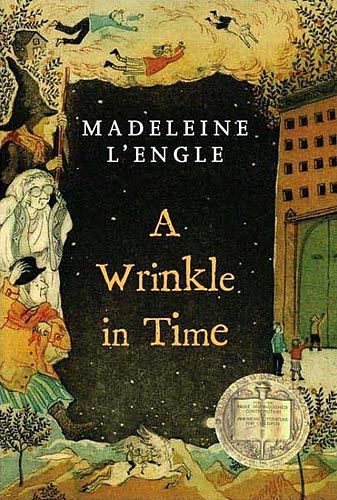Category Archives: Cohen
Creative Narrative Assignment
We just finished out unit on Africans in New York. We wrote a two paragraph piece about the people in the biography we were assigned. I wrote about Belinda Lucas, an enslaved woman who managed to buy her freedom. We had to bold the facts we put in, and italicize the key terms. I learned that a slave could buy freedom from their master, and I also learned that slaves could go to certain schools. I think I have made a small amount of progress with putting detail into my work, but it is not much of a difference. Something I learned about myself is that I actually prefer taking a test rather than writing a short creative writing piece. I think tests take less time, but these assignments are really interesting experiences. I did my writing in a letter form, and here it is.
Dear Harriet,
It has now been many, many years since I was taken to Antigua. No matter how long I am here, I will always miss Africa. The sun on my face, the wind in my hair, and the sweet smell of freedom have been replaced by cold, dreary streets, and forced labor for the white people. My former master recently passed on, so I was auctioned off again. It was hot and stuffy in that little room where the auction was held, and it was very dim. I could hardly see the people bidding, and I felt like I would melt into a puddle if it got any hotter. It seemed to go on for hours, and there were four others there who were being sold. One man tried very hard to buy me, and when he could not afford to bid higher, he said that I wasn’t worth twenty pounds anyway. My new master, a lawyer named Livingston, is not quite as bad as the old, though he is not exactly kind to me. He treats me as if I were lower than him, but he is never cruel, never strikes me, and never raises his voice in anger. Madam acts the same, and I am more often in her company than his. The house is relatively grand, but the stone floors are freezing, and the nights are always chilly. I live in the attic, and it is quite drafty up there. I expected to hate it, but the cool breeze reminds me a little bit of home. But we didn’t have schools back home, so I do have some reason to not run away. I have just begun attending a place called the Clarkson School, which teaches me to read and write better. It is fairly small, but it is warm and cozy inside. It feels like a safe community, and it provides me with chances to talk to other enslaved people who wish to be educated. Once I finish there, I will buy my freedom. I will leave this place, and go to live elsewhere with my husband. I feel I have been enslaved too long, and I must get out of here! I hope you are well, for I have heard of sickness in Charleston, and some recent unfriendly weather. I am sorry to say that my young daughter has also recently passed. She was very sick, and try as we might, we could not save her. It is a shame that she had to die so young, and I am determined to live far longer than she. I hope that no other young people will have to die like that. Perhaps we are simply worked too hard, I do not know.
When I was with my old master, I worked in the cotton fields. He owned a small farm outside the wall, a bowery, and I was expected to work the fields from dawn to dusk, with barely a moment’s rest. He did not grow fruit or vegetables, but cotton. When the harvest came, the other enslaved people and I would slow down, work less quickly. We wanted to make a point. He was not a harsh master, but Madam was cruel. She treated us like chattel, and expected us to have harvested every scrap of cotton in the field by the day’s end. She was very strict and business-oriented. I do not know why she treated us that way, but we decided not to work to her standards. We slowed progress, we ‘misplaced’ certain items, and some of us even ran away, just for the harvest. I never ran away myself, but many left and then returned just after the harvest.
Now that I am working in the city, my skills with plants are no longer needed. Livingston and his wife are strict, but they are not cruel. They treat me well, or about as well as a slave can be treated. Now, I clean, cook, and sew. Madam requires my services as a maid, and Livingston would have me cook for the family. I was surprised to learn that I am not a bad cook, though I have not had much practice. Even though it is not too bad here, I still feel as though the city is not my place. I miss the smell of the fields, and the way the breeze would blow around us. The city is far too loud for me. Everyone is so noisy, and I feel like I will be swept away by the crowds. I am considering moving to Charleston once I am free, in the hopes that it will be more peaceful. Perhaps I shall see there.
Until we meet again,
Belinda Lucas.
HUMANITIES!
This is my Giver essay. I am proud of it because I think I made a good argument. I think I did pretty well, and I like how it turned out. I think I really got my point across.
Here is my 10th note card about colonial gender roles. I’m proud of this because I got a lot in here. I think I had some good questions and inferences, and I think I did a better analysis than I usually have.
Here is my 2nd chapter writing from M13C. I am proud of this because I think I described the things well. I also think I wrote this well and had a good analysis. I am also proud of this because I got a fairly good grade.
In Humanities, I have been trying to extend my analysis. I think it’s working. Humanities has been really fun!
Summer Reading
Here are the books I’ve read.





Page 137: This is why you don’t grow a giant mustache. It might slow you down if you get caught on something, and that’s all the time a criminal may need. It was already getting in the way of Poirot’s soup.
P. 142: Coquetry- flirtatious behavior/manner. That really does mostly sum up that character (who has yet to be named). She’s described to be very fashionable with a striking face.
P. 144: Poirot said, “I do not like your face,” and left. That comment won’t go over well. How will Ratchett react? It probably won’t be good. He seems like a nasty customer. Poirot noted that he looked kind of two-faced. There was something ‘malicious’ in his eyes.
P. 159: The pipe cleaner was probably dropped on purpose to make Poirot suspect a man, but there was a woman’s handkerchief too.
P. 159: I think it may have been the Hungarian couple. It appears to have been multiple people who killed Ratchett, and they seemed kind of shady. There were too many different wounds on the dead man to be caused by one person.
P. 160: There were multiple wounds, so it may have been both people trying to make it look like the other did it by dropping the handkerchief and the pipe cleaner, or they were both careless. But it would be too much of a coincidence, and the Hungarians looked a bit too smart and careful to be so sloppy.
P. 164: The Hungarian woman must be Linda Arden’s youngest daughter, and little Daisy Armstrong’s aunt! The dead man killed Daisy, so revenge could be the motive! She didn’t seem like someone to just let that sort of thing go. She was described as delicate, but I got the sense that she was strong.
P. 170: Apparently a woman in a scarlet silk kimono had something to do with the murder, Several witnesses – including Poirot – saw her on the night of the crime near the dead man’s compartment.
P. 173: Why did they call cigarettes ‘gaspers’?
P. 180: Ratchett was dead by then, so how could he answer in French?
P. 184: I’m not surprised that the Russian princess knew of Poirot, but why’d she say “this is destiny”?
P. 186: It’s weird that so many people took similar medications on the night of the crime. Is this an alibi, or coincidence?
P. 188: Ascertained- Made sure of.
P. 200: Again, the woman in red comes up. It could be either the Hungarian countess, or someone who left the train.
P. 204: Now a small dark guy with an odd voice comes up in the plot. He was probably the second murderer, as Poirot suspects that there were two.
P. 208: Aha! The weapon was planted in a passenger’s luggage! That’s a classic trick.
P. 220. The scarlet kimono was found on top of Poirot’s suitcase. The murderers must be on the train, and now they know for certain that a detective’s onto them.
P. 233. I was right about the Hungarian countess’s identity, but I’m still not sure if she committed the crime. It’s very likely.
P. 253: All the passengers revealed some connection to the Armstrong family! Apparently they ALL stabbed Ratchett. So this case was about justice and revenge. What an odd ending. It was certainly well-written, though.
